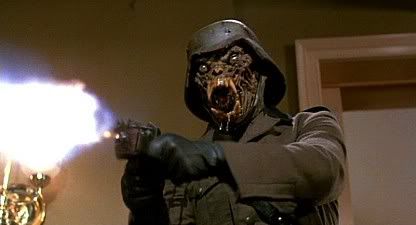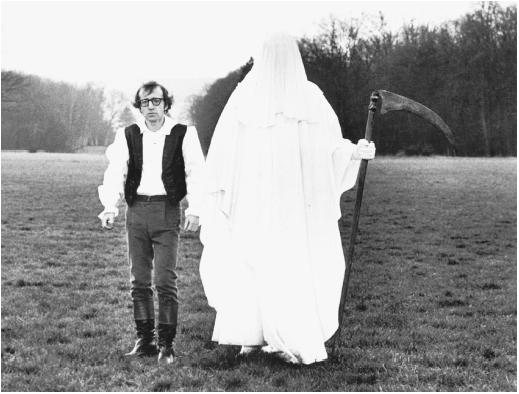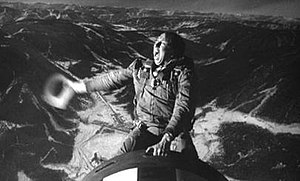OK, first off, I agree that this is a VERY good topic, but I'm not sure that people fully understand the difference between satire, spoof, parody, dark comedy, farce, and/or the fact that many films incorporate many of the above into one hopefully seemless film. When I think of satire, I think of something either making social commentary on things which people take for granted [war, politics, "normal life" (accepting "the system")] or perhaps certain conventional genres of film, literature, TV and music]. For example, what would you call
An American Werewolf in London? I think it's a satire on the werewolf genre, as well as a dark comedy, a full-blooded horror film and a flick which truly trailblazes a new, unnamed genre. Is it funny? Oh, God, yes, but are the funny parts actuallly the best or are they so intertwined with the horror, sexuality and storytelling, that it's not really that important?

Is Woody Allen's
Love and Death a satire? Before I answer that question, I want to say here and now that it's funny as hell, but is it a satire of
War and Peace or is it a spoof? I guess you could argue that it truly makes some social commentary on the world that Tolstoy was limning, but since I believe its chief aim is to make fun of rather than socially-critique, I find it to be a spoof, and occasionally it pushes the limits up to farce. For example,
Duck Soup is undoubtedly a political satire, but it's just so crazy that most people would probably see it as a farce, similarly to ALL the Marx Bros. films.


I find
The Graduate to be a wonderful social satire, even though I've heard it not that highly regarded around here lately, but the film does show "an overachieving, young bum", who lives in an insulated, well-to-do society who graduates from college at an early age and proceeds to enter into an affair with an older married woman who's even more bored than he is. The thing is that she's had plenty of time to determine how bored she is, and for all we know, she's had many such affairs, but for "the Graduate", he's in way over his head and just lets the sensuality, as dull and meaningless as it is, wash over him as some form of recompense for his job "well done" of graduation. The worm turns when he decides that his lover's daughter is far more compatible than her mom and actually downright lovable.

Then we get into films which are just too witty for words. I'm not sure if any of these are satires, but if they aren't, what the hell are they? I'm talking about the works of Shaw (
Pygmalion), Wilde (
The Importance of Being Earnest), Hill/Goldman (
Butch Cassidy and the Sundance Kid) and Penn/Willingham (
Little Big Man). These films definitely satirize relations (as in a strong comedy of manners) and the western genre, but they equally provide extremely dramatic (sometimes tragic) moments. What would you consider these films?


I really like this topic. I feel like I could go on and on here, but I'm not sure that anything I say would truly have any meaning to anybody else because I do believe that understanding and/or appreciating satire has to do with one's life experience. And I'm not trying to be an agist here because I honestly believe that there are many more literate younger people on here than I am, so they may have an entirely different perspective than I do. In fact, I spent an hour talking with my daughter about satire before I made this post, and she's a fount of info, so I'm going to shut down, but I'll be back if the responses demand it.










